| Instructor | Bio |
|---|---|
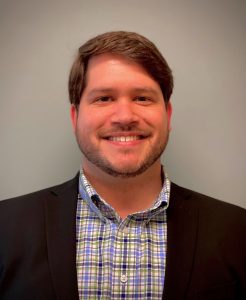 |
Jayce Daniels Senior Forensic Scientist Alabama Department of Forensic Sciences, Forensic BiologyMr. Daniels currently serves as the Regional DNA Technical Leader for the Mobile Regional Laboratory and is certified in Molecular Biology by the American Board of Criminalistics. Jace has over nine years of experience in Forensic Biology and has assisted with several validation projects within the laboratory, including bringing the Alabama Department of Forensic Sciences online with the probabilistic genotyping software application STRmix. When he’s not in the laboratory, Jace enjoys going bowling in pursuit of the elusive 300 game. |
 |
Matt Grbac Forensic Scientist Alabama Department of Forensic Sciences Matthew Grbac is a forensic scientist with the Alabama Department of Forensic Sciences. He has worked for the agency since 2018 as a Drug Chemist. His expertise lies in identifying the presence or absence of controlled substances or analogues. Matt obtained his Master’s of Science in Forensic Science and Bachelor’s of Science in Chemistry from the University of Alabama at Birmingham. |
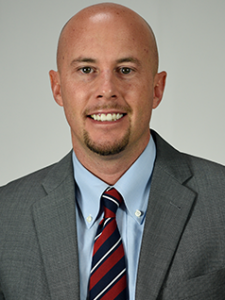
|
Curt E. Harper, Ph.D., F-ABFT Chief Toxicologist Alabama Department of Forensic Sciences Specialties: DUI/D, Oral Fluid Drug Testing, Postmortem Toxicology, Drug Facilitated Sexual AssaultDr. Curt E. Harper has over 15 years of experience as a Forensic Toxicologist. He was appointed Chief Toxicologist for the Alabama Department of Forensic Sciences (ADFS) in 2012. As Chief Toxicologist, he oversees technical operations, method development and validation, and the quality assurance/quality control program. He manages productivity, serves as training coordinator, and develops and maintains standard operating procedures. Dr. Harper has a Ph.D. in Pharmacology and Toxicology and a Master’s of Science in Forensic Science from the University of Alabama at Birmingham. He holds board certification as a Fellow of the American Board of Forensic Toxicology (F- ABFT). He is Chair of the Oral Fluid Committee and former Chair of the SOFT/AAFS Drugs and Driving. |

|
Rebecca Hill Forensic Scientist and Training Coordinator Alabama Department of Forensic Sciences Implied Consent Unit Rebecca Hill is a seasoned forensic scientist and training coordinator for the Alabama Department of Forensic Sciences (ADFS) Implied Consent Unit, with 25 years of dedicated service. Rebecca holds a Bachelor of Science degree in Biology from Alabama State University. She is a certified police officer through the Alabama Peace Officer Standard and Training Commission (APOSTC). Rebecca is also a National Highway Traffic Safety Administration (NHTSA) certified Standardized Field Sobriety Test (SFST) instructor. Additionally, she holds numerous factory certifications in evidential breath testing, portable breath testers, and ignition interlock systems from multiple manufacturers. Rebecca has been instrumental in advancing the Alabama Breath Alcohol Program, playing a vital role in transitioning from the Intoxilyzer 5000 to the Draeger Alcotest 7110 MK-IIIC, and subsequently to the Intoximeter Intox DMT Dual Sensor instrument. Her work in these transitions has been critical in maintaining the accuracy and reliability of breath alcohol testing in the state. |
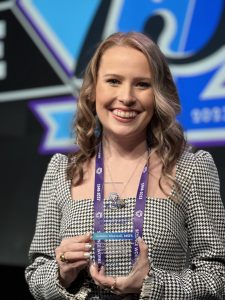
|
Jasmine Maxwell, MSFS Forensic Scientist Alabama Department of Forensic Sciences Jasmine Maxwell joined the Alabama Department of Forensic Sciences in December 2021 as a Forensic Scientist in the Breath Alcohol section. In this role, she plays a pivotal role in training over 4,000 breath testing operators annually, conducts calibration and evaluation of evidential breath testing instruments, and provides onsite service to testing locations statewide. Jasmine holds a Master’s of Science in Forensic Science from the University of Alabama at Birmingham, complemented by a Bachelor’s degree in Chemistry from Tennessee Wesleyan University. She is currently enrolled at Oklahoma State University to pursue a Doctoral Degree in Forensic Science. She actively contributes to the forensic science community as the Assistant Treasurer for the Alabama State Association of Forensic Sciences and as the chair of the Training Committee for the International Association for Chemical Testing (IACT). |
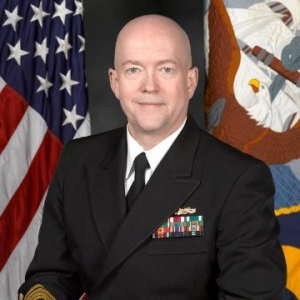 |
Edward A. Reedy, PhD. MD. State Medical Director Alabama Department of Forensic SciencesDr. Reedy served with the Armed Forces Medical Examiner System as a forensic pathologist in various roles from 2006 to 2015. Doctor Reedy retired from the U.S. Navy in 2017 with the rank of Captain after more than 26 years of honorable service. Just before retirement, he served as the Science Director for the Defense POW/MIA Accounting Agency (DPAA) where he identified U.S. military personnel from past conflicts. He is board-certified in anatomic, clinical, and forensic pathology and is licensed to practice medicine in Maryland, Virginia, and Alabama. The Alabama Department of Forensic Sciences currently employs him as a full-time forensic pathologist in Montgomery. Doctor Reedy is licensed to practice Medicine in Maryland, Virginia, and Alabama, and is Board Certified in Anatomic, Clinical, and Forensic Pathology. He maintains active memberships in several medical professional organizations and is a National Association of Medical Examiners Fellow. He is the author of many peer‐reviewed scientific publications. |
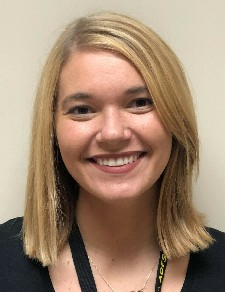
|
Jaylan Reynolds Firearm and Toolmark Analyst Alabama Department of Forensic SciencesMs. Reynolds has worked for the Alabama Department of Forensic Sciences since 2019. Her expertise lies in examining firearms and toolmarks and interpreting the scientific results of the evidence submitted. She is a proud member of the prestigious Association of Firearm and Toolmark Examiners (AFTE) as well as the Alabama State Association of Forensic Scientists (ASAFS). |
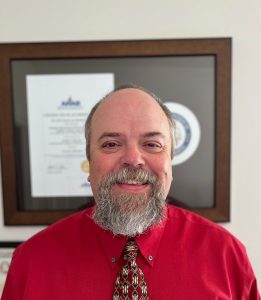
|
Gregory Turner, PhD Technical Director for the Chemical Texts for Intoxication (Implied Consent) Discipline Alabama Department of Forensic Sciences Gregory Leon Turner, PhD (Greg) received his Bachelor of Science degree in chemistry from Jacksonville State University. After graduating from Jacksonville State, he attended the University of Alabama where he received a Master of Science and Doctor of Philosophy in Physical Chemistry. He has worked as a research chemist for the US Bureau of Mines, and the University of Alabama. Dr. Turner also worked as an analytical chemist for Battelle Memorial Institute stationed at the chemical weapon disposal facility located at Anniston Army Depot in Anniston, Alabama. He started working as a forensic scientist for the Alabama Department of Forensic Sciences in 1998.Dr. Turner is currently the Technical Director for the Chemical Tests for Intoxication (Implied Consent) Discipline of the Alabama Department of Forensic Sciences. In addition to his duties as the Technical Director he also currently serves as the Discipline Chief and Laboratory Director for the Implied Consent Laboratory located in Pelham, Alabama. |

